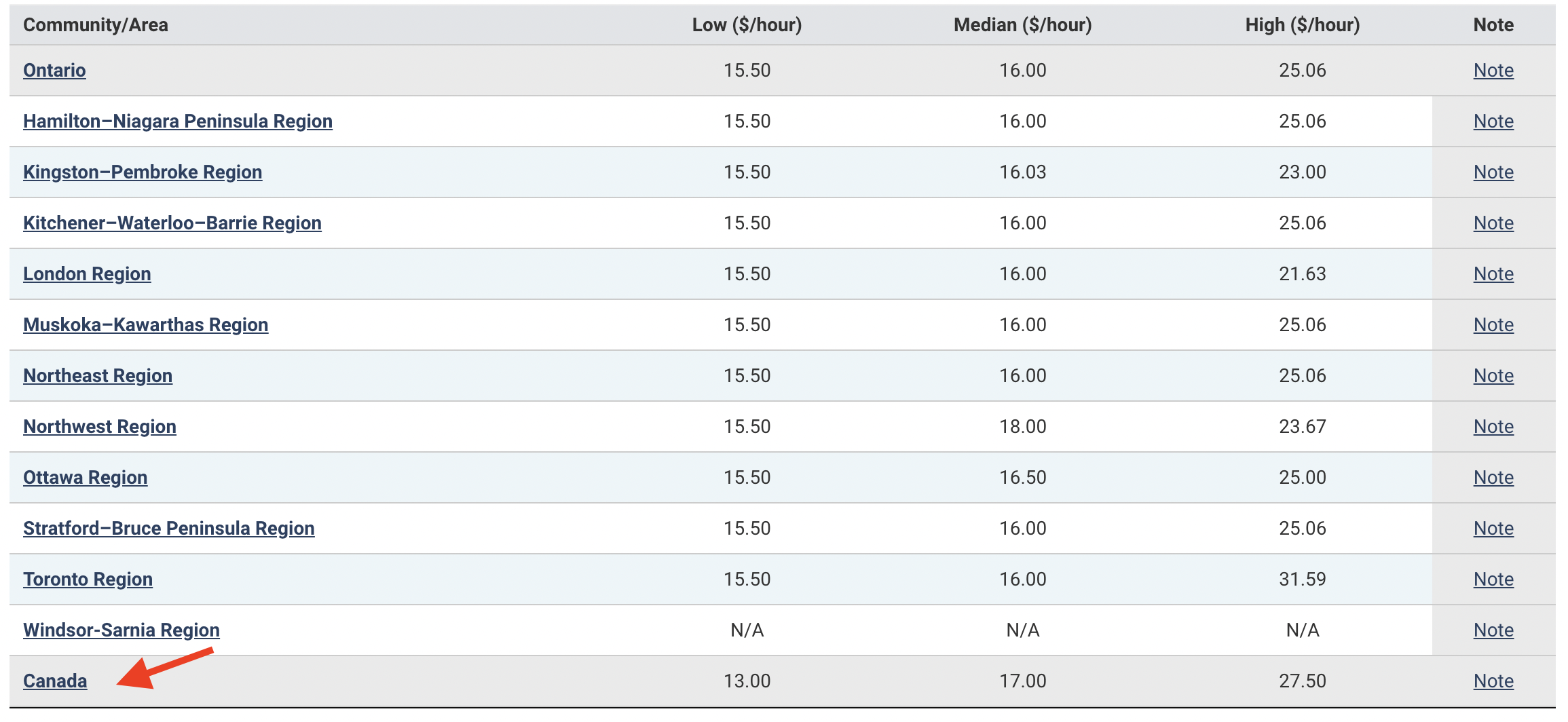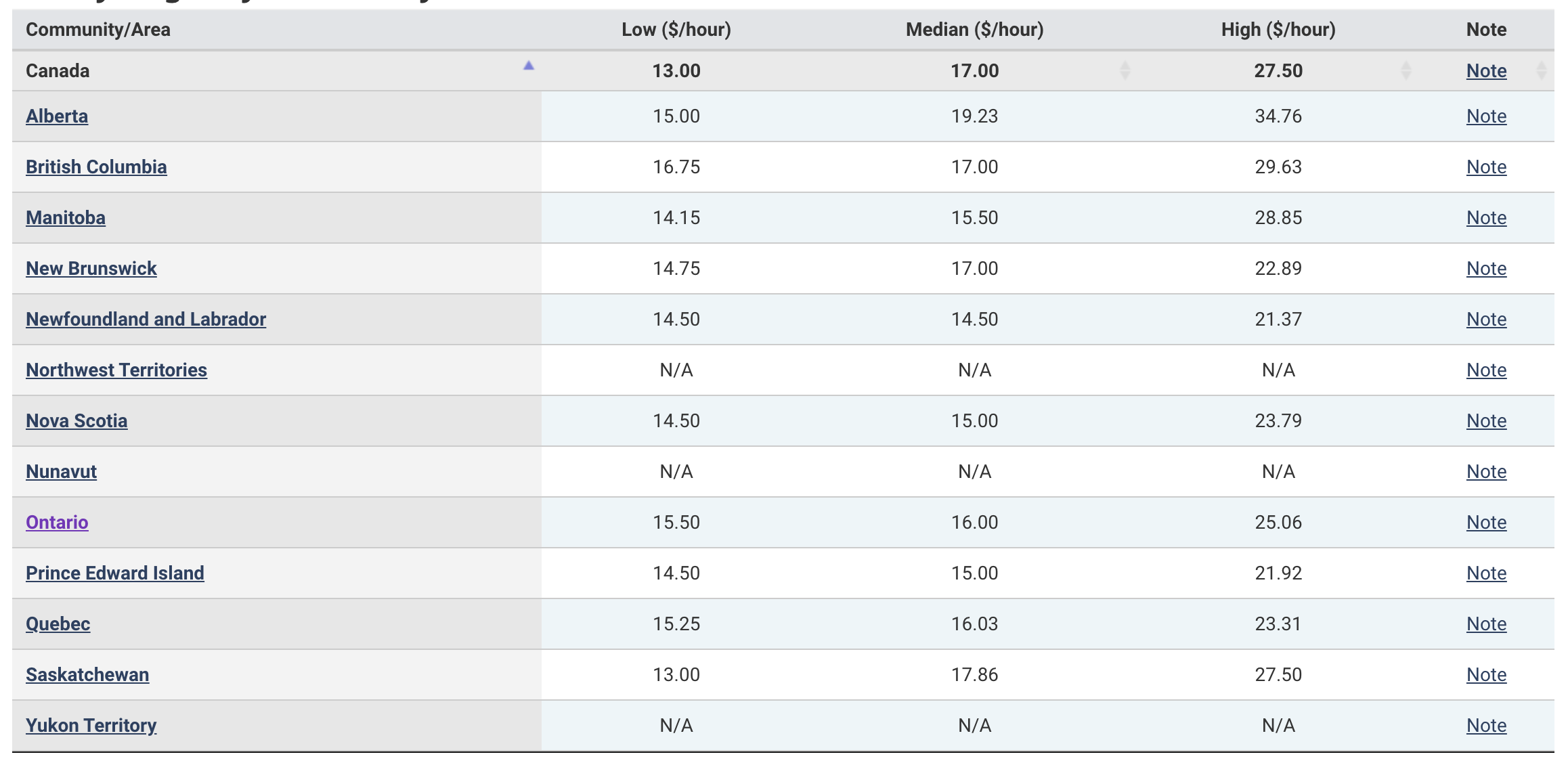In Canada, the minimum wage varies from province to province, and from territory to territory. Basically, it depends on where you work.
Hourly minimum wages by province/territory
Here are the minimum wages by province and territory as of 2023:
- Alberta: $15
- British Columbia: $15.65
- Manitoba: $14.15 ($15 as of October 1, 2023)
- New Brunswick: $13.75
- Newfoundland and Labrador: $14.50 ($15 as of October 1, 2023)
- Northwest Territories: $15.20
- Nova Scotia: $14.30 ($14.65 as of October 1, 2023)
- Nunavut: $16
- Ontario: $15.50
- Prince Edward Island: $14.50 ($15 as of October 1, 2023)
- Quebec: $14.25, but $11.40 for tipped jobs
- Saskatchewan: $13, ($14 as of October 1, 2023)
- Yukon: $15.70
Provinces and territories adjust their minimum wages once in a while—check out this up-to-date page from the Government of Canada for upcoming changes.
Gross pay, net pay and income tax
The various minimum hourly wages listed here, as well as annual salaries, are always “gross pay,” not “net pay.” This means that wages and salaries are always before tax deductions.
In Canada, income tax is deducted at the source, directly from your wages (it works differently if you’re self-employed or working as a freelancer). You will still have to file a tax return the following fiscal year so that Revenue Canada can calculate whether you’ve overpaid or still owe tax.
Your federal tax bracket—15% to 33% in Canada—is based on your taxable income. Other payroll deductions include contributions to the Canada Pension Plan (CPP) and Employment Insurance (EI) systems.
How much can I expect to make in Canada?
Fast-food workers, call centre employees, waiters and various frontline customer service positions are often minimum-wage jobs. However, while employers are not allowed to pay employees less than the minimum wage, they can offer more than the minimum wage, especially in a post-pandemic environment with labour shortages and a higher cost of living. Work on your negotiation skills or accept the minimum wage to gain work experience (and references!) in Canada!
Skilled positions typically pay much more than the minimum wage. Read the chapter Average wages in Canada in our cost of living review by province and territory for a spotlight on low, median and high average wages for 30 selected occupations.
The Government of Canada’s Job Bank website is a precious resource we mention quite often. The Explore the Market tool is particularly useful because the Wages tab lists salaries for each occupation across Canada.
Let’s take the example of a search by occupation in the province of Ontario.
Click on the Wages tab and you’ll see the low, median and high wages by community and areas across Ontario.
The last row is “Canada” for further research across the country.

Click for a complete overview by province and territory.

This is a great tool for salary negotiation!
Useful resources for your job search in Canada
Finding a job and working in Canada offers tips and advice to find opportunities, create a Canadian-style resume, navigate the hiring process, and more.
Looking for a job? Check out offers in Canada, employers are posting daily on PVTistes.net!
Don’t forget to add your resume to our database—employers will be able to contact you directly if you’re a good match.
We also recommend a selection of the best job-search websites.
Finally, we recently talked about opportunities with Bombardier in Quebec—check them out!












 Français
Français English
English






0 comments
{{like.username}}
Loading...
Load more